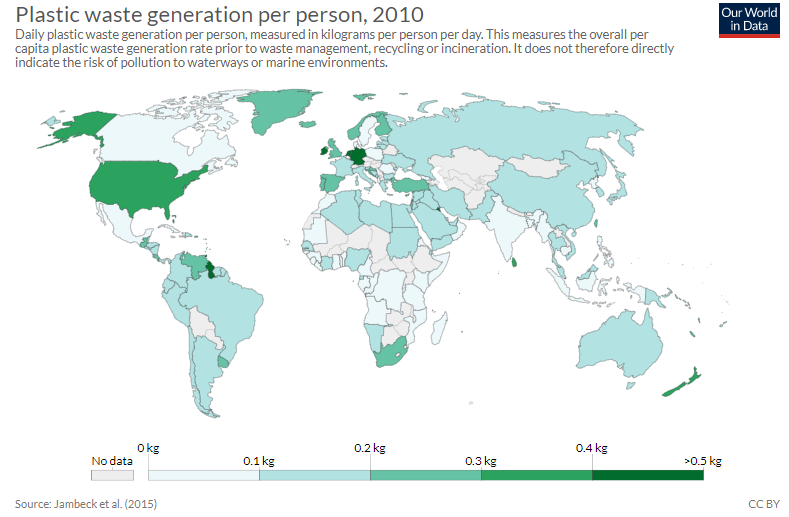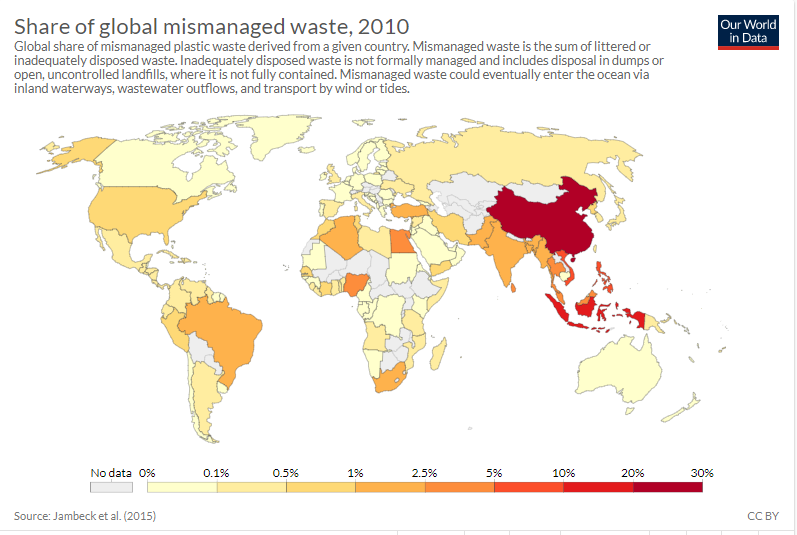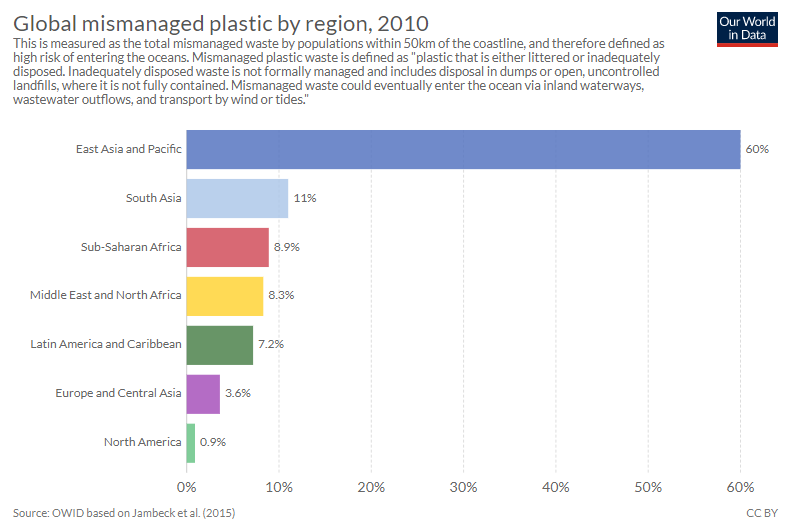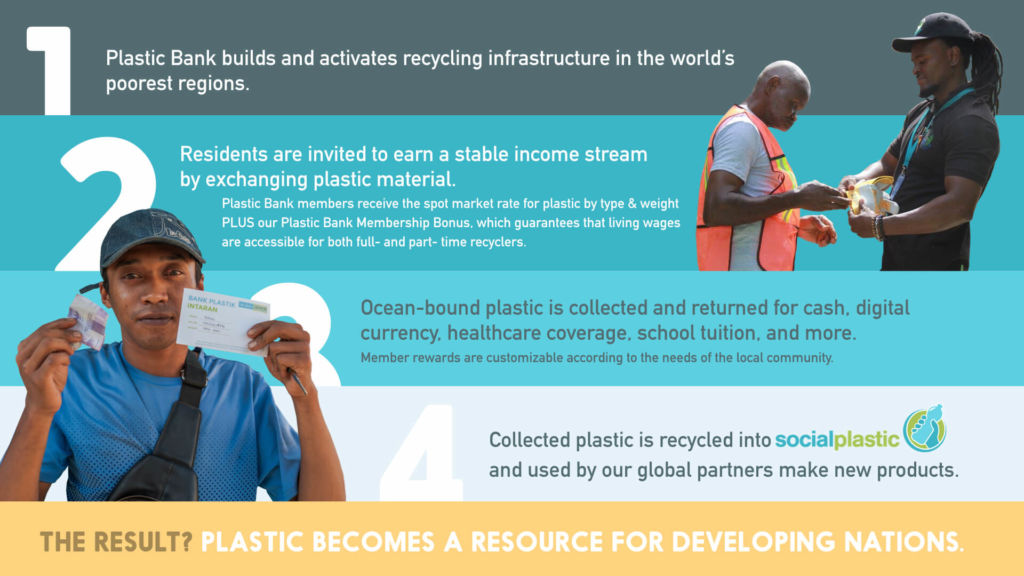Capitalism is Saving the Planet Part Seven: Most Ocean Plastic Comes From The Developing World
With all the talk about banning plastic straws in the name of saving the oceans, very little of the discussion focuses on where the bulk of ocean plastic actually comes from.
Here’s a hint, it’s not wealthy capitalist countries.
In fact, research shows that the vast majority of all ocean plastics come from developing Asia and Africa.
The graph below is from Our World In Data, and it shows per capita use of plastics for countries around the planet. Here it is no surprise that the United States ranks among the largest consumers of plastic in the world on a per capita basis. In fact, only Germany, Ireland, and Guyana generate more plastic waste on a per-capita basis than the U.S.

However, just because we use a lot of plastic in the United States doesn’t mean that it ends up in the oceans. In fact, the United States and the rest of the developed world are responsible for just a tiny fraction of the plastic that ultimately ends up in the oceans despite the fact that they are the largest consumers of plastics. It’s not bad to use plastic if you dispose of it properly.

Unfortunately, developing countries don’t dispose of their plastics properly, as Asia and Africa account for 88.2 percent of global plastics in the oceans.

This is ultimately why bans on plastic bags and straws will not meaningfully improve the environment. As you can see, North America accounts for less than one percent of ocean plastics, and if it isn’t broke, you cannot fix it.
If environmentally-conscious people want to make the most meaningful impact possible in the lives of marine animals, they would be better served by funding public sanitation efforts in the developing world to make sure that people living in these regions are able to dispose of their plastics properly.
My friend Todd Myers of the Washington Policy Center has written about a company called PlasticBank, which pays people in developing countries to collect plastics that may otherwise end up in the ocean. This company has been successful because it incentivizes people to think of plastic as a resource, rather than a waste product, and it rewards people for collecting plastic with compensation in the form of cash, healthcare, and education services.

Rather than banning things that actually work, like plastic straws, the environmental community would better serve the planet by supporting companies like PlasticBank. This would provide the greatest return for their investment, and the environment.